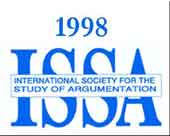Wind als inkomstenbron voor de leefbaarheid ~ Stichting Windmolens Ternaard
Maart 2014. In de provincie Utrecht zoeken pioniers elkaar op om alternatieve energiebronnen aan te boren en gezamenlijk zonnepanelen te plaatsen. In Friesland zijn ze een stap verder, daar spelen organisaties van dorpsbelang al jarenlang een actieve rol bij de energiewinning. Zoals in Ternaard, waar de winst uit vijf dorpswindmolens de hele dorpsgemeenschap ten goede komt. Jaarlijks kunnen ze daar circa 20- tot 30.000 euro besteden aan energiebesparing, sociale projecten en verbeteringen van de leefomgeving. Pepijn Binkhorst van de Natuur en Milieufederatie Utrecht (NMU) ziet ook in Utrecht mogelijkheden voor dorpscomités die bereid zijn hun nek uit te steken.
Ternaard is een dorp met krap 1500 inwoners en ligt aan de kust van de Waddenzee, de kop van Friesland. Het is een van de regio’s in ons land waar bevolkingskrimp op de loer ligt. Met bijkomende kwalen als wegtrekkende jongeren, werkloosheid, vergrijzing en economische malaise. Alle reden dus om op zoek te gaan naar creatieve oplossingen. Frederik van der Lugt, destijds voorzitter van de vereniging Dorpsbelangen Ternaard, vatte vijftien jaar geleden het plan op om windmolens rond het dorp te plaatsen. Tegenwoordig is hij voorzitter van de stichting Windmolen Ternaard: ‘Ik zag een enorme toekomst in het verschiet liggen voor windenergie. Helemaal zo dicht bij de kust, wij wonen hier in een van de meest windrijke omgevingen van ons land.’
Aarzelend
De vijf molens die rond het dorp staan zijn voor 70 procent in het bezit van de bewoners, verenigd in de Stichting Windmolens Ternaard. De resterende dertig procent is in handen van een drietal boeren die de molens op hun grondgebied hebben. Het unieke van het initiatief in Ternaard is dat de initiatiefnemers hun ideële doelstelling van schone energie op een slimme manier combineren met, zakelijk gezien, een lucratieve aanpak en een sociale besteding van de opbrengsten. De financiering van de molens is afkomstig van participaties door de dorpsbewoners zelf. Dat is in drie tranches gegaan blikt de initiatiefnemer terug op het prille begin. Van der Lugt: `De eerste tranche verliep nog aarzelend. Ondanks een rente van tien procent die wij in het vooruitzicht stelden. Het kostte aanvankelijk moeite om mensen hier te overtuigen. Toen dat eenmaal lukte, waren we heel snel door de tweede en derde tranche heen.’ Read more
ISSA Proceedings 1998 – Table Of Contents
ISSA Proceedings 1998
Frans H. van Eemeren et al – Preface
Aakhus, M. – Reconstruction games: Assessing the resources for managing collective argumentation in groupware technology
Aldrich, A.W. – Framing Blame and Managing Accountability to Pragma-Dialectical Principles in Congressional Testimony
Amossy, R. – The argument ad hominem in an interactional perspective
Azar, M. – Refuting counter-arguments in written essays
Baaske, K. – Arguing Over Values: The Affirmative Action Debate and Public Ethics
Baker, M. – The function of argumentation dialogue in cooperative problem-solving
Balter, S.J. – ‘The Search for Grounds in Legal Argumentation: A Rhetorical Analysis of Texas v Johnson’
Bedau, H.A. – What are the ‘Anarchical Fallacies’ Jeremy Bentham Discovered in the 1789 French: Declaration of the Rights of Man and Citizen?
Beer, F.A. & De Landtsheer, C. – Metaphorical politics: mobilization or tranquilization?
Berkenbosch, R. & Van der Geest, I. – Practical guidelines for justifying decisions about major projects
Birrer, F.A.J. – Asymmetry in the dialogue between expert and non-expert
Blair, J.A. – Walton’s argumentation schemes for presumptive reasoning: A critique and development
Brandon, E.P. – What’s Wrong with God?
Branham, R. – Abolitionist reconstructions of July Fourth
Brashers, D.E., Haas, S.M. & Neidig, J.L. – Satisfying the Argumentative Requirements for Self Advocacy
Cattani, A. – Bad Reasoning, Good Humor
Chan, W. – Wittgenstein and Cognitive Psychology
Cohen, D.H. – How To Lose an Argument
Coleman, E. – Acts of argumentation: beyond spoken dialog
Collins, C.A. & Schmid, J.D. – The Power and Perceived Truthfulness of Visual Arguments in U.S. Political Campaign Biofilms
Conley, T.M. – The Renaissance Roots of Perelman’s Rhetoric
Craig, R.T. & Sanusi, A.L. – “I’m Just Saying …”: Discourse Markers of Standpoint Continuity
Danblon, E. – Is Praise a kind of Advice? Read more
ISSA Proceedings 1998 – Preface
 At the Fourth Conference of the International Society for the Study of Argumentation (ISSA) in June 1998 a great many scholars interested in argumentation assembled in Amsterdam to present papers and exchange views. The ISSA conferences have become an important meetingplace for argumentation theorists stemming from a great variety of academic backgrounds and traditions and representing a wide range of academic disciplines and approaches: philosophy, speech communication, psychology, law, linguistics, rhetoric (classical and modern), logic (formal and informal), critical thinking, discourse analysis, pragmatics, and artificial intelligence. The Proceedings of the conference reflect that diversity.
At the Fourth Conference of the International Society for the Study of Argumentation (ISSA) in June 1998 a great many scholars interested in argumentation assembled in Amsterdam to present papers and exchange views. The ISSA conferences have become an important meetingplace for argumentation theorists stemming from a great variety of academic backgrounds and traditions and representing a wide range of academic disciplines and approaches: philosophy, speech communication, psychology, law, linguistics, rhetoric (classical and modern), logic (formal and informal), critical thinking, discourse analysis, pragmatics, and artificial intelligence. The Proceedings of the conference reflect that diversity.
Almost all the papers presented at the conference are published in this Proceedings of the Fourth ISSA Conference on Argumentation. Apart from the hard copy publication, a cd rom version of the proceedings is also made available.
This time the papers are arranged in alphabetical order. In principle, all papers are published exactly as they are handed in by the authors; no further editing has taken place.
The four editors would like to express their gratitude to the Board of the University of Amsterdam, the Faculty of Humanities, the Royal Netherlands Academy of Arts and Sciences (KNAW), the Dutch Speech Communication Association (VIOT), the Institute for Functional Research of Language and Language Use (IFOTT), the Amsterdam University Association (AUV), the City of Amsterdam, Kluwer Academic Publishing House, and the International Centre for the Study of Argumentation (Sic Sat) for their financial support of the conference and the publication of these Proceedings.
They also want to thank Erik Poolman, Bart Garssen and Willy van der Pol for their assistance.
Frans H. van Eemeren – University of Amsterdam
J. Anthony Blair – University of Windsor
Rob Grootendorst – University of Amsterdam
Charles A. Willard – University of Louisville
ISSA Proceedings 1998 – Reconstruction Games: Assessing The Resources For Managing Collective Argumentation In Groupware Technology
 Advances in new information technology has brought computerization to bear on practices of argumentation in organizations thus providing a range of new alternatives for improved handling of disputes and decisions (Aakhus, 1997; Baecker, Grudin, Buxton, and Greenburg, 1995; Ngyemyama and Lyytinen, 1997; Nunamaker, Dennis, Valacich, Vogel, and George, 1991; Poole and DeSanctis, 1992). Many of these technologies, called “groupware,” are systems explicitly designed to intervene on discourse and manage it by supplying resources that help communicators overcome obstacles to resolving or managing their disputes and decisions. In designing and deploying groupware, members of the industry practice “normative pragmatics” (van Eemeren, Grootendorst, Jackson, and Jacobs, 1993) since they grapple with the problem of reconciling normative and descriptive insights about disputing and decision- making in order to effectively manage it. In particular, they must deal with a critical puzzle for argumentation theory and practice (and for groupware design). That is, how to develop procedures that further the resolution of a dispute while remaining acceptable to the discussants and that apply to all speech acts performed in order resolve the dispute (van Eemeren & Grootendorst, 1984, p. 17).
Advances in new information technology has brought computerization to bear on practices of argumentation in organizations thus providing a range of new alternatives for improved handling of disputes and decisions (Aakhus, 1997; Baecker, Grudin, Buxton, and Greenburg, 1995; Ngyemyama and Lyytinen, 1997; Nunamaker, Dennis, Valacich, Vogel, and George, 1991; Poole and DeSanctis, 1992). Many of these technologies, called “groupware,” are systems explicitly designed to intervene on discourse and manage it by supplying resources that help communicators overcome obstacles to resolving or managing their disputes and decisions. In designing and deploying groupware, members of the industry practice “normative pragmatics” (van Eemeren, Grootendorst, Jackson, and Jacobs, 1993) since they grapple with the problem of reconciling normative and descriptive insights about disputing and decision- making in order to effectively manage it. In particular, they must deal with a critical puzzle for argumentation theory and practice (and for groupware design). That is, how to develop procedures that further the resolution of a dispute while remaining acceptable to the discussants and that apply to all speech acts performed in order resolve the dispute (van Eemeren & Grootendorst, 1984, p. 17).
The purpose here is to show how practical solutions to this analytic puzzle found in groupware reveal implicit theories of argument reconstruction. Implicit theories yet to receive descriptive or critical attention. This is accomplished by conceptualizing groupware products as models of “reconstruction games” that when implemented constitute particular forms of talk through which parties address a dispute or decision.
1. Groupware
Groupware products are designed for a wide range of human activity that involves argument relevant activities such as scheduling, strategic planning, design, group-writing, and negotiation. Groupware is defined by Peter and Trudy Johnson-Lenz as “intentional group processes and procedures to achieve specific purposes plus software tools designed to support and facilitate the group’s work” (Hiltz and Turoff, 1992, p. 69). The enduring novelty of groupware lies in (1) the capacity of the tools to allow large groups of people to come together across time and geographic location and in (2) how the nature of the medium might solve standard problems of collaborative decision-making such as information sharing, cooperative action, authority, and errors of collective judgement (Johansen, 1988; Sproull & Keisler, 1991; Turoff & Hiltz, 1978).
Advances in networked computing are leading to a proliferation of groupware products that are increasingly difficult for users, designers, and researchers to classify, assess, and choose. Indeed, what are groupware products supposed to do? It is generally understood that groupware aids decision relevant communication (DeSanctis & Gallupe, 1987). Yet, existing approaches for classifying and assessing groupware do not adequately address the communicative purposes of groupware design. For instance, the most common way proposed to understand groupware is in terms of how the tool supports interaction across time and geographic location (Johansen, 1988). The trade literature, moreover, focuses on the technical compatibility of groupware products within existing technological infrastructures (Price Waterhouse, 1997). Read more
ISSA Proceedings 1998 – Framing Blame And Managing Accountability To Pragma-Dialectical Principles In Congressional Testimony
 On July 7, 1987, Marine Lieutenant Colonel Oliver L. North appeared before the Select Committee of the United States Congress investigating the Iran-Contra affair. The name Iran-Contra refers to a two pronged initiative conducted covertly by the National Security Council[i] (NSC) to (a) sell weapon systems to Iran in exchange for the release of Americans taken hostage by fundamentalist Islamic groups in Lebanon, and (b) divert profits from these weapons transaction in support of the Contra rebel resistance movement fighting the Sandinista government in Nicaragua. North served on the staff of the NSC and was the individual widely thought to be responsible for many of the covert activities under investigation by the select committee (Newsweek, January 19, 1987: 17).
On July 7, 1987, Marine Lieutenant Colonel Oliver L. North appeared before the Select Committee of the United States Congress investigating the Iran-Contra affair. The name Iran-Contra refers to a two pronged initiative conducted covertly by the National Security Council[i] (NSC) to (a) sell weapon systems to Iran in exchange for the release of Americans taken hostage by fundamentalist Islamic groups in Lebanon, and (b) divert profits from these weapons transaction in support of the Contra rebel resistance movement fighting the Sandinista government in Nicaragua. North served on the staff of the NSC and was the individual widely thought to be responsible for many of the covert activities under investigation by the select committee (Newsweek, January 19, 1987: 17).
Congressional Hearings have as their ostensible goal the uncovering of “truth.” This occurs in part through unmasking and making public the various acts and activities of individuals and organizations of interest to the American government and people.
This truth oriented goal is identified in the observations provided by two members serving on the Select Committee conducting the Iran-Contra hearings, Congressman Bill McCollum (R-Florida) and Senator Paul S. Sarbanes (D-Maryland). Their commentary occurred on the last day of the initial questioning of North by the attorneys for the Select Committee.
Example A: 324-325
01 McClm: Their job, I thought, in my opinion, whether it’s Senate counsel or House counsel, is to bring out facts, not to give positions, not to slant biases. And I think Mr. Liman has been going through a whole pattern of biased questions today. He has done some of that in the past, but it has been particularly egregious this morning.
04 Sarb: ’And I think the witnesses that come before us come here in order to help us to get at the truth…But, I think Counsel’s questioning has been reasonable and tough, but it’s been within proper parameters… it’s a responsibility of Counsel and of the members of this committee to press the witnesses very hard to find out the truth in this matter.
These remarks in the participant’s own voices highlight several important aspects of congressional hearings. First, the publicly stated goal of such hearings is to bring the facts or “truth” into public view. Second, there are at least two participants who occupy different roles. A questioner presents questions to respondents who provide answers. Participants in the hearing process share the responsibility for getting facts or truth of a matter into the open. With this responsibility comes accountability on the part of each participant to the process. In example A, McCollum asserts the function of the questioner is to uncover facts, the questioners being in this case the legal counsels for the Select Committee who performed the majority of the questioning of Colonel North and other witnesses.
Sarbanes represents the function of the hearings as “to get at the truth.” Witnesses, occupying the role of answerer, participate in order to help uncover the truth. Read more
ISSA Proceedings 1998 – The Argument Ad Hominem In An Interactional Perspective
 My general contention is that argument ad hominem can be viewed as an integral part of ordinary argumentation, and more specifically, of polemical discussions and debates. Departing from the definition of ad hominem as an informal fallacy, this paper analyzes it as a component of the argumentative interaction between orator, addressee and opponent. It draws on a few contemporary theories stressing the importance of rhetorical interaction rather than of mere logical validity. In this framework, argument ad hominem is examined in relation both to the status and to the image (ethos) of the opponent and of the proponent.
My general contention is that argument ad hominem can be viewed as an integral part of ordinary argumentation, and more specifically, of polemical discussions and debates. Departing from the definition of ad hominem as an informal fallacy, this paper analyzes it as a component of the argumentative interaction between orator, addressee and opponent. It draws on a few contemporary theories stressing the importance of rhetorical interaction rather than of mere logical validity. In this framework, argument ad hominem is examined in relation both to the status and to the image (ethos) of the opponent and of the proponent.
I will try to briefly outline this approach while discussing its main sources, in particular van Eemeren and Grootendorst’s pragma-dialectical treatment of the argument ad hominem, and Brinton’s “ethotic argument”. Theoretical principles will then be exemplified by a case study, namely, Julien Benda’s open letter to Romain Rolland, which is a protest against Rolland’s appeal for understanding and peace during World War I.
Argument ad hominem: a short theoretical survey
As emphasized in historical surveys of the notion (Hamblin 1970,van Eemeren & Grootendorst 1993, Nuchelmans 1993), the expression argument ad hominem refers to various argumentative phenomena that have to be sorted out before proceeding to any further reflection. The main distinction is the one clearly drawn by Gabriel Nuchelmans between arguments ex concessis “based on propositions which have been conceded by the adversary” (1993:38), and proofs or refutation focussing on the person rather than on the matter of the case. In order to avoid confusion, the latter has sometimes been called argumentum ad personam (Perelman and Olbrechts-Tyteca 1970). We shall however stick to the argumentum ad hominem as an argument directed toward the person of the speaker (and not as a premiss admitted by a specific audience).
“According to modern tradition an argument ad hominem is committed when a case is argued not on its merits but by analysing (usually unfavourably) the motives or background of its supporters or opponents” (Hamblin 1970:41). In Copi’s words:
“Whenever the person to whom an argument is directed (the respondent) finds fault with the arguer and concludes that the argument is defective, he or she commits the ad hominem fallacy” (Copi 1992:127).
Roughly speaking, there are three main contemporary approaches to the study of argument ad hominem: logic, pragma-dialectic and rhetoric. Read more



